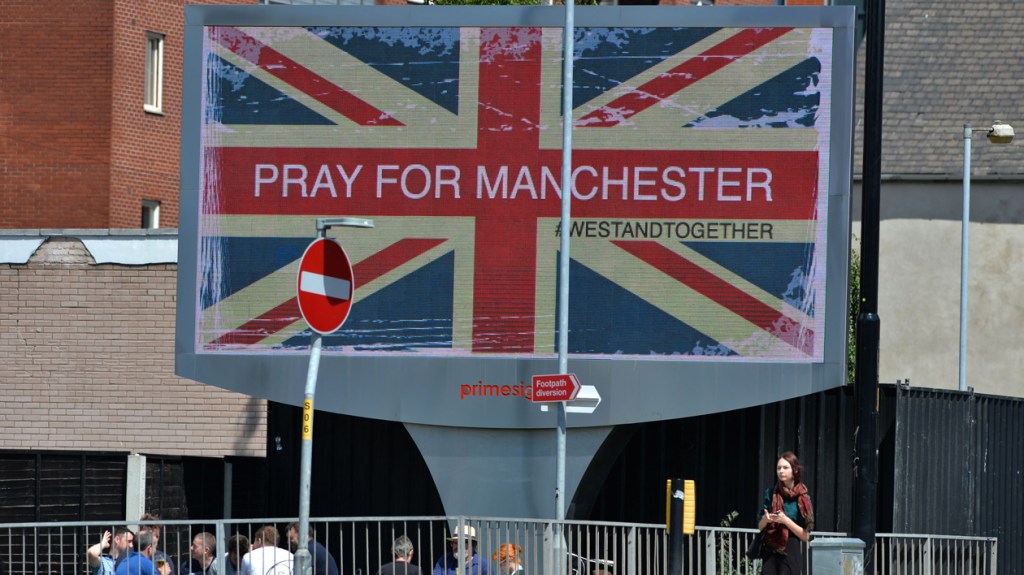New legislation to protect concertgoers from terrorist attacks at UK music venues has been introduced in Parliament, after years of campaigning by his mother Martin Hattone of the 22 victims of the 2017 Manchester Arena bombing outside an Ariana Grande concert.
The Terrorism (Protection of Premises) Bill, better known as Martin's Law, received its first reading in Parliament on Thursday (12 September).
The legislation requires all venues with a capacity of more than 200 to take “appropriate measures” to protect concertgoers from harm by implementing a range of measures, including mandatory staff safety training and prevention and protection plans terror. attacks.
For venues with a capacity of more than 800 people, operators are required to establish comprehensive public protection procedures that set out plans to evacuate people from the premises and move them to a place where there is a reduced risk of bodily harm.
These procedures should be regularly updated and assessed by the UK regulator, the Security Industry Authority (SIA), the law states. Large venues should also take appropriate measures to reduce their vulnerability to terrorist attacks by monitoring the building and immediate vicinity with CCTV or employing security personnel.
In addition, venue operators will be required by law to limit the disclosure of information about their premises that may be “useful to a person committing or preparing a terrorist act”.
Failure to comply with the regulations or a venue providing false information to SIA can result in fines of up to £18 million ($23.5 million) or 5% of the operator's annual global revenue, whichever is greater. The maximum fine for a small music venue seating between 200 and 800 people is capped at £10,000 ($13,000).
The government says the bill's proportional and tiered approach, which is linked to the size of the site and the scale of the activity taking place, will ensure “small businesses are not unduly burdened”.
An impact assessment carried out by the Home Office estimates that the cost of implementing the new security requirements is around £300 ($390) a year for small venues and around £5,000 ($6,500) a year for buildings with a capacity of over 800 people.
The much-touted bill was drafted in response to the suicide bombing outside an Ariana Grande concert at the Manchester Arena in 2017, in which 22 people were killed and more than 800 injured, many of them children.
A public inquiry into the tragedy found that failures by the British security agency MI5, local emergency services, Greater Manchester Police and security teams working at the SMG venue meant there were multiple opportunities to prevent or minimize the “catastrophic impact of the attack”. lost.
Figen Murraythe mother of victim Martyn Hett, led the campaign for stricter safety regulations for music venues. Earlier this year, he walked 200 miles from Manchester to Downing Street in London to push for the law to come into force.
“Today means we're one step closer to making public spaces safer for everyone,” Murray said in a statement.
Now that the bill has passed first reading in the House of Commons, it will be debated by MPs, who may propose amendments. It will then proceed to the House of Lords for approval before receiving Royal Ascension and becoming law. The government said businesses would receive detailed guidance to understand their new obligations and time to implement any changes required.
“This legislation will strengthen public safety, help protect staff and the public from terrorism and ensure that the lessons are learned from the horrific Manchester Arena attack and the investigation that followed,” the Home Secretary said. Yvette Cooperin a statement.
Responding to the bill's progress, Michael KeelChief executive of the Night Time Industries Association, praised Figen Murray for her “unwavering commitment” to her son's honour, but said it was vital the “balance between increased safety and practical application” was carefully considered by MPs.
“Key concerns include the operational impact, the skills required of site operators and the financial impact of enforcing these new security protocols,” Kill said. “While the aims of Martyn's Law are laudable, it is important that the legislation is designed with expediency and fairness in mind.”



